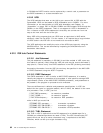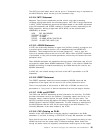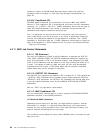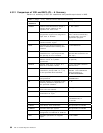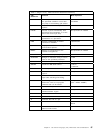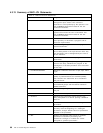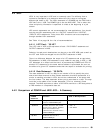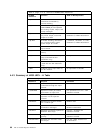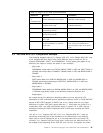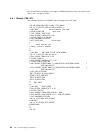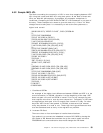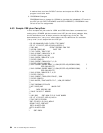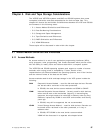
Table 9 (Page 2 of 2). Overview of POWER JECL Statements
POWER
Statement
Function JES2 or MVS Equivalent
* $$ FLS Indicates that a VSE/POWER job
should be terminated by
internal flushing.
/*PURGE if INTRDR
* $$ JOB Indicates the beginning of a
VSE/POWER job and specifies
the routing of jobs, output, and
notify messages.
// JOB
* $$ LST Provides handling information
for printer output; routes list
output to a node.
// OUTPUT, /*OUTPUT, or // DD
SYSOUT=x, DEST=destination
* $$ PUN Provides handling information
for punched output; routes
punch output to a node.
// OUTPUT, /*OUTPUT, or // DD
SYSOUT=x, DEST=destination
* $$ RDR Inserts a diskette file into the
input stream.
No equivalent in OS/390.
* $$ SLI Inserts data from an accessible
library.
// INCLUDE
* $$ /* Indicates the end of a VSE job
step (used with the SLI
statement only).
No equivalent in OS/390.
* $$ /& Indicates the end of a VSE job
(used with the SLI statement
only).
No equivalent in OS/390.
/*$SLI Indicates end of input data for
an SLI member.
No equivalent in OS/390.
4.4.3 Summary of JES2 JECL - A Table
Table 10 (Page 1 of 2). JES2 Control Statements
Statement Purpose Comments
/*$command Enters JES2 operator
commands through the input
stream.
/*JOBPARM Specifies certain job-related
parameters at input time.
Use parameters on the // JOB
statement instead.
/*MESSAGE Sends messages to the
operator via the operator
console.
Seldom used.
/*NETACCT Specifies an account number
for a network job.
Seldom used.
/*NOTIFY Specifies the destination of
notification messages.
Use NOTIFY on the // JOB or //
OUTPUT statements.
/*OUTPUT Specifies processing options for
SYSOUT data set(s).
Use the // OUTPUT JCL
statement instead.
/*PRIORITY Assigns a job queue selection
priority.
Use PRTY= on the // JOB
statement instead.
/*ROUTE XEQ Specifies the execution node
for the job.
Use the /*XMIT statement as
an alternative.
90 VSE to OS/390 Migration Workbook



